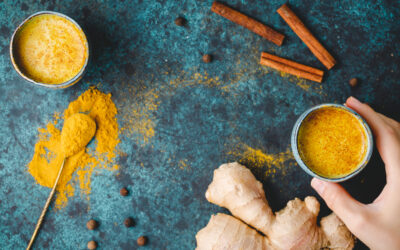Ever heard of the Turner twins? You know, the guys who rowed the Atlantic, climbed Europe’s highest peak (Mt Elbrus, Russia, 18,500 feet) in Ernest Shackleton-era kit, and cycled thousands of kilometers to the center point of South America?
If you haven’t, then how is that rock you’ve been living under? Just kidding, we’re sure there are plenty of other things that keep you busy and distracted (We hear tell the new iPhone is quite the contraption).
But we digress. The point is, that these guys are fit as a fiddle, and they attribute much of their success to their strong will and determination.
If you have heard of the Turner twins, then you’ll know that these two madcap Brits aren’t ones to shy away from a challenge. So when they decided to take on the vegan vs. meat diet debate, we knew it was going to be good.
The world watched with bated breath as these two men, who were otherwise genetically identical, started to look more and more different as the days, weeks, and months went on.
From the food they ate, to the supplements they took, to the exercise they did, everything was under scrutiny as we all tried to figure out which diet was best. And after 12 long weeks of following both twins closely, we finally have an answer.
Which diet came out on top? Read on to find out!
The Vegan vs. Meat Eater Study: An Overview

Back in 2020, the Turner twins – Hugo and Ross – took on the challenge of eating opposite diets for 12 weeks, in order to settle the vegan vs. meat diet debate once and for all. They did this alongside a fitness training regime from January – March.
The goal was to remove bias as much as possible, and to take down the commonly held belief that you need meat to build muscle and be strong, or that you had to eat a plant-based diet to be lean. As they are genetically identical, they left it up to science to determine which diet was best.
As the study proceeded, the team of researchers at King’s College followed and monitored the men’s progress very closely. This included general health metrics like muscle mass, cholesterol, and weight.
Both Hugo and Ross were on a level playing field. They eat an almost equivalent amount of calories with food prepared by Mindful Chef. And Ross, the personal trainer of the two, created an endurance training program that they both followed to the letter, 5-6 times per week.
Towards the end of the study, it became clear that there were some big differences between the two twins. Primarily, in their digestive health, fat loss, and muscle growth.
Hugo, the Vegan – Results
Hugo started the experiment weighing in at 185 pounds and with 13% body fat. However, just 1 month in, he had already dropped down by nine pounds – a significant amount considering he was eating well. By the end of the 12 weeks, he was at 181 pounds with just 12% body fat.
While Hugo did put some weight and muscle back on through the course of the study, he still managed to maintain a lower weight and body fat percentage than when he started. His cholesterol and heart health also improved significantly, with a reduction in LDL (bad) cholesterol, and an increase in HDL (good) cholesterol.
In addition to this, Hugo’s muscle mass increased by 2 pounds, and he saw his visceral fat – the dangerous kind of fat that surrounds your organs – drop by a significant 33%.
What’s more? Hugo’s skin also looked healthier, his hair was glossier, and he reported having more energy than ever before. All in all, it’s fair to say that veganism did Hugo a lot of good!
Ross, the Meat Eater – Results
Although identical in features, Ross has always been ever so slightly larger than Hugo. However, like his brother, Ross started the study with 13% body fat. But by the end of the 12 weeks, he had put on 10 pounds of muscle, and his body fat percentage had increased to 15%.
Ross’s cholesterol levels did not change, but his weight and muscle mass did. He mentioned peaks and drops of energy throughout the day, and his skin was not as clear as Hugo’s.
In addition, Ross’s gut bacteria stayed stable throughout the study, while Hugo’s gut bacteria diversity decreased severely. This is an important point, as a more diverse gut microbiome has been linked with better immunity, digestion, and heart health.
Ross did not report any adverse side effects from eating meat. However, he didn’t experience the same benefits as Hugo either.
Conclusion: Who Won the Vegan vs. Meat Eater Showdown?
It’s safe to say that the vegan vs. meat-eater study was a resounding success for Hugo, the vegan twin. He lost weight, lowered his body fat percentage, improved his cholesterol levels, and saw a significant increase in muscle mass.
Interestingly, however, the vegan diet resulted in a severe reduction in gut bacteria diversity, while it remained relatively stable during the meat and dairy diet. Ross’s microbiome did change slightly, but not to the same extent as Hugo’s. In theory, this means that vegan Hugo could potentially have been more susceptible to illnesses compared to Ross.
So, who is the winner of the vegan vs. meat-eater showdown? It’s a close call, but unfortunately, neither veganism nor meat-eating is a perfect diet. With the right amount of knowledge and effort, however, you can make either diet work for you. And that’s the most important thing!
Variety is the Spice of Life

The Turners are now back to their usual diets, but they’re both a lot more mindful about what they’re eating. They make sure to get a good mix of protein, carbs, and healthy fats at every meal, and they’re never afraid to add a little extra variety into their diets.
” Variety is the spice of life,” Hugo says. There is no need to be reluctant to try new foods, or new diets. Veganism isn’t for everyone, but neither is meat-eating. The key is to find what works best for you and your body. After all, we’re all unique!




